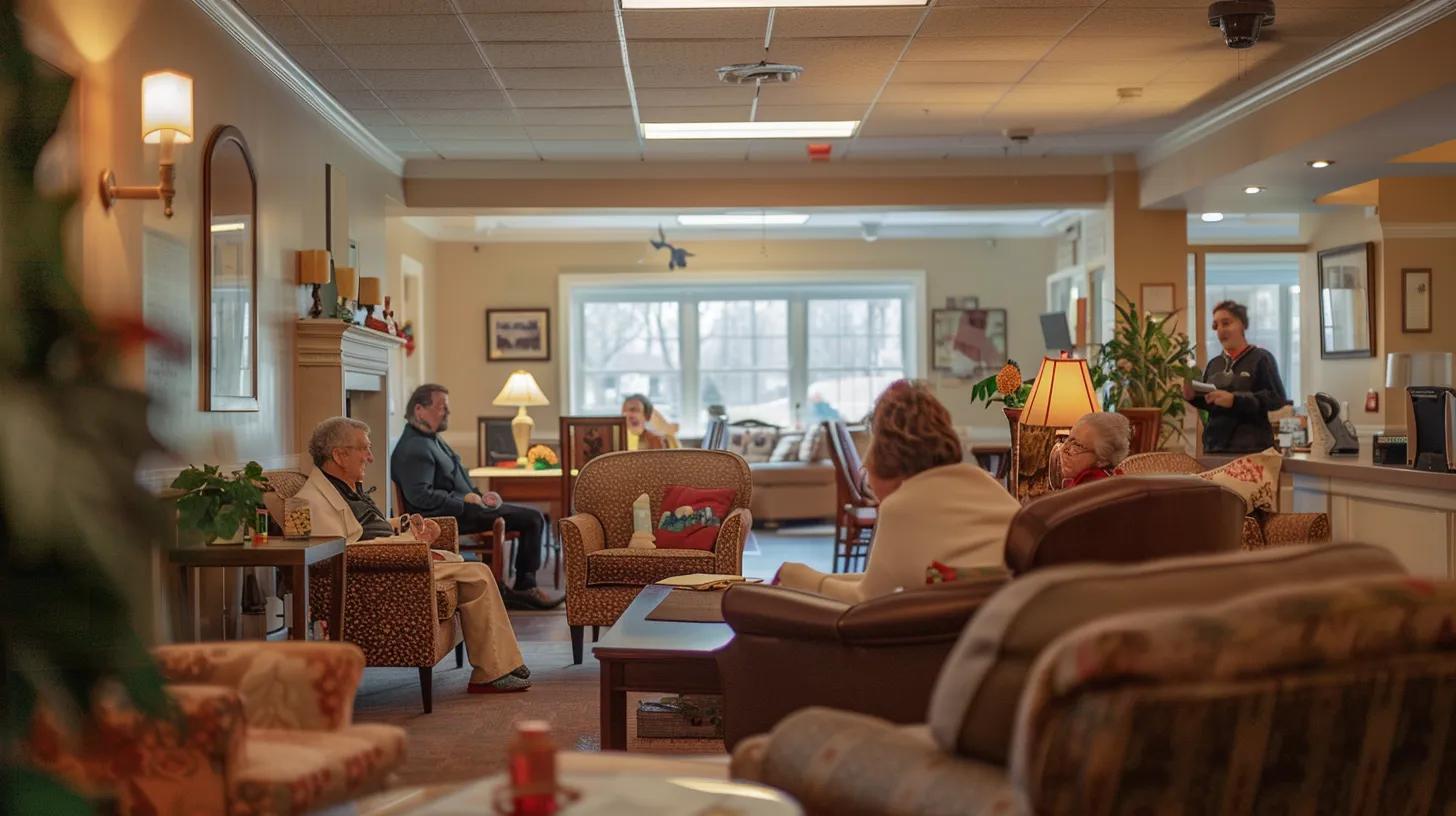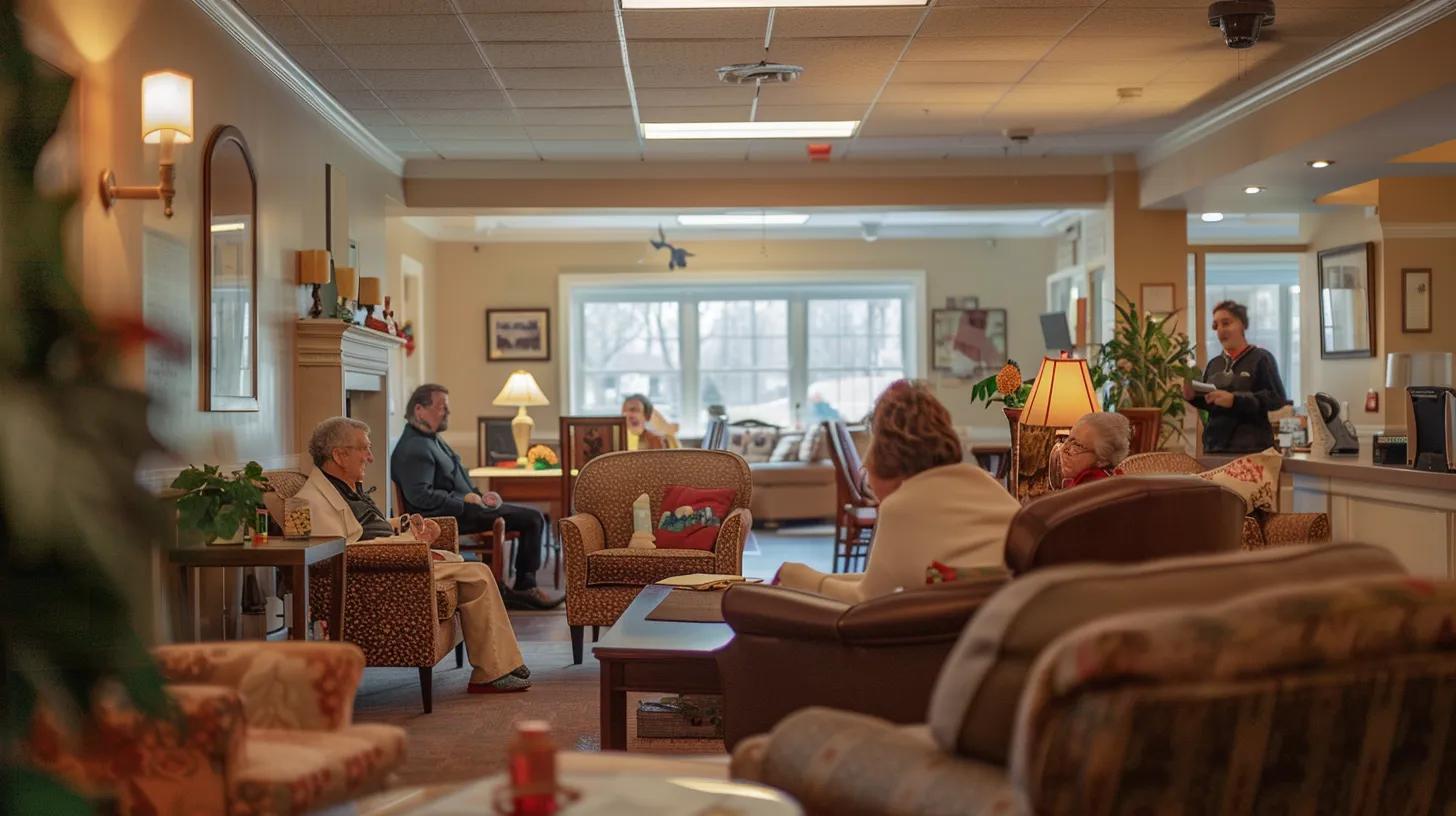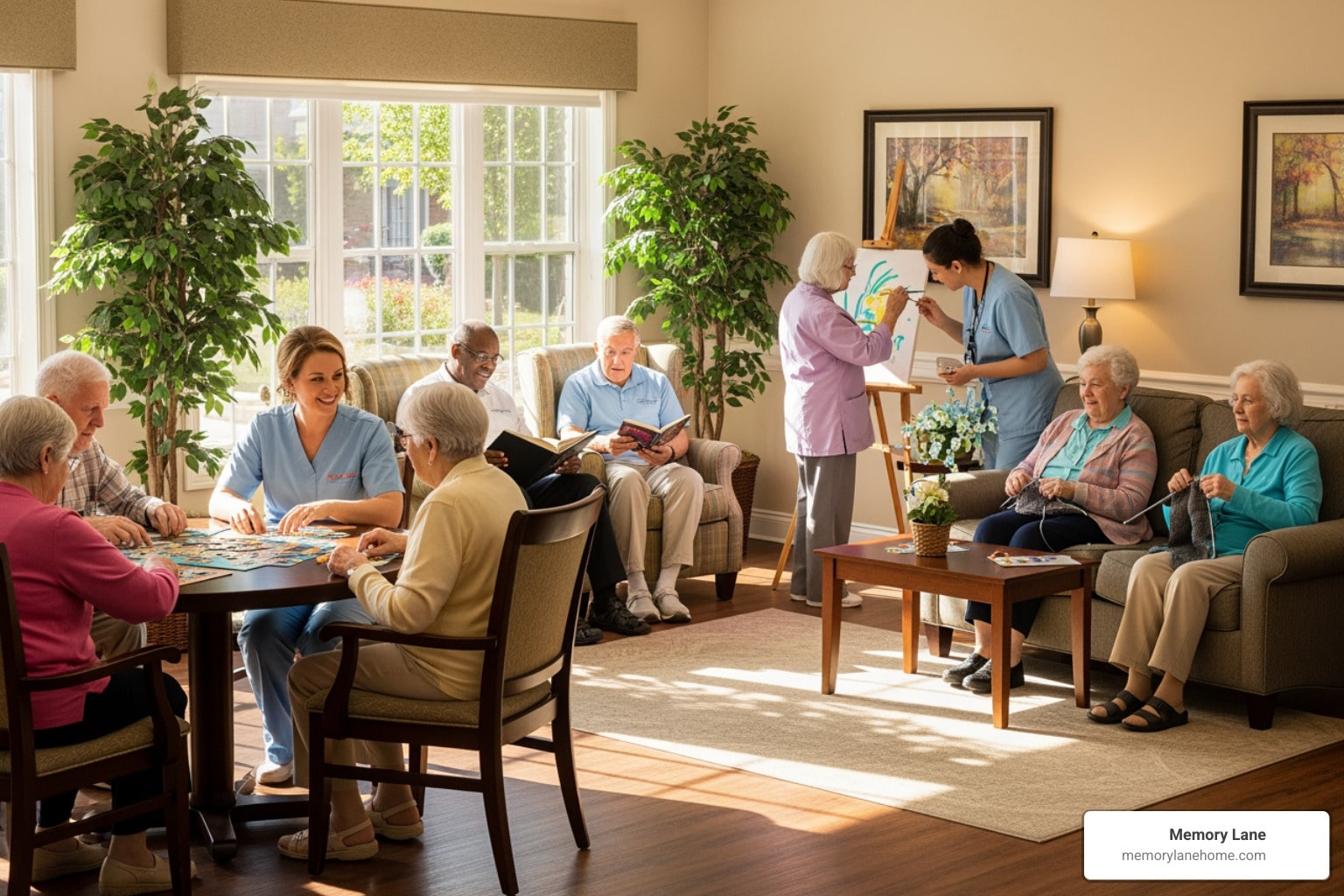Your guide to assisted living Michigan: explore costs, services, financial aid, and top communities for senior care.

Personalized Alzheimer’s Care Near Me for Your Family
Personalized Alzheimer’s Care Near Me for Your Family

In-Home Alzheimer’s Care Near Me: Personalized Support & Memory Care
In today’s challenging landscape of memory care, families looking for high-quality in-home Alzheimer’s care have several options that emphasize personalized attention in a familiar home-like setting. Facilities like Memory Lane offer specially designed environments with low caregiver-to-resident ratios and individualized care programs focused on enhancing everyday living, maintaining dignity, and reducing the stress on family members. This article offers a comprehensive guide to the key services offered in local in-home Alzheimer’s care, the differences between memory care facilities and general senior care, the benefits of support groups, best practices in dementia care, insights into costs and payment options, and steps to start the process of finding the right care for your loved one.
The following sections answer critical questions regarding personalized care planning, the roles of trained caregivers, medication management, and the importance of 24/7 availability—all supported by practical advice for families navigating the challenges of dementia care.
Table Of Contents:
- In-Home Alzheimer’s Care Near Me: Finding Compassionate Support and Memory Care Services
- What Are the Key Services Offered in Local in-Home Alzheimer’s Care?
- Where Can I Find Reliable Memory Care Facilities Near Me?
- How Can Alzheimer’s Support Groups Near Me Help Families and Caregivers?
- What Are the Best Practices for Dementia Care Near Me?
- How Do Alzheimer’s Caregiver Support Services Enhance Care Quality?
- What Are the Costs and Payment Options for Alzheimer’s Care Near Me?
- How Can I Start the Process of Finding Alzheimer’s Care Near Me?
- Table: Comparison of Memory Care Costs and Services
- Frequently Asked Questions
- Final Thoughts
What Are the Key Services Offered in Local in-Home Alzheimer’s Care?
Local in-home Alzheimer’s care provides a range of services aimed at addressing the physical, mental, and emotional challenges faced by individuals with dementia. Central to these services is personalized care planning that targets the patient’s unique needs through customized daily activities, nutrition, and specialized therapies—all designed to create a safe and supportive environment.
How Does Personalized Care Planning Improve Alzheimer’s Support at Home?
Personalized care planning is vital because it tailors interventions to each individual’s cognitive, medical, and psychological needs. Caregivers begin with comprehensive assessments that consider the patient’s history, current status, and personal interests. This data-driven approach shapes care plans that not only manage physical health but also engage the patient in cognitive and social activities, which may slow symptom progression.
Such plans also incorporate consistent routines that help lower anxiety and confusion. For example, a set daily schedule can boost mood and reduce agitation. Coordination among nurses, therapists, and physicians ensures holistic care. Families benefit from clear guidelines and periodic reviews that keep the plan updated, reducing uncertainty about the disease’s progression.
What Roles Do Trained Alzheimer’s Caregivers Play in Daily Care?
Trained Alzheimer’s caregivers provide consistent, compassionate support every day. Their training covers behavioral management, emergency response, medication administration, and communication techniques suited for individuals with memory loss. They observe subtle changes in behavior to detect early signs of health decline and help develop routines that promote independence in activities like bathing, dressing, and eating.
Moreover, caregivers act as liaisons between families and medical professionals, monitoring vital signs and managing behavioral symptoms such as confusion or wandering. Their expertise ensures that interventions are timely and appropriate, thereby offering families peace of mind that their loved ones receive professional and compassionate care.
How Is Medication Management Handled in in-Home Dementia Care?
Medication management is a cornerstone of effective in-home dementia care. Many Alzheimer’s patients take several medications to control their symptoms and other conditions. Caregivers maintain detailed medication schedules, ensuring correct dosages and timing while watching for potential drug interactions. Many employ electronic pill dispensers and reminder systems to prevent missed or accidental extra doses.
Regular coordination with healthcare providers allows for consistent adjustments to the regimen based on the patient’s evolving needs. This careful monitoring minimizes side effects and maximizes the effectiveness of treatment while enhancing overall patient safety.
Why Is 24/7 Availability Important for Alzheimer’s Care Near Me?
Because Alzheimer’s is unpredictable, continuous 24/7 care is critical. Patients may face sudden confusion, agitation, or emergencies at any time, requiring immediate attention. In-home care services with round-the-clock availability help manage these episodes promptly, reducing risks such as falls or injuries.
Continuous support reinforces a sense of security for both patients and their families, helping maintain daily routines and reducing stress. Emergency protocols included in 24/7 plans facilitate rapid intervention, ensuring that expert help is only a phone call away. This constant presence also improves the monitoring of health trends, allowing proactive adjustments in care.
Where Can I Find Reliable Memory Care Facilities Near Me?

Finding the right memory care facility is essential for ensuring that a loved one with Alzheimer’s receives tailored, effective care. Memory care facilities are specially designed for individuals with dementia, offering environments that promote well-being and cognitive stimulation. These facilities differ from general senior care by focusing on preserving cognitive function and emotional stability.
What Are the Differences Between Memory Care and General Senior Care?
Memory care facilities differ in their level of specialization and service offerings. They are specifically geared toward managing Alzheimer’s and other dementias using practices that address cognitive and behavioral challenges. Facilities are built with secure environments to prevent wandering and include activities that stimulate the brain and encourage social interaction.
In contrast, general senior care caters to broader physical and daily living needs without focused cognitive therapies. While general care centers may provide nutritional support or physical rehabilitation, memory care emphasizes cognitive exercises, reminiscence, and sensory stimulation to slow dementia progression. Facility design, clear signage, consistent layouts, and calming color schemes further help reduce confusion for residents, ensuring a higher level of personalized care.
How Do Memory Care Facilities Support Alzheimer’s Patients?
Memory care facilities support patients through a holistic approach that blends behavioral therapies, social engagement, and therapeutic activities. These environments are designed to be both safe and stimulating—with features like locked outdoor areas and monitoring systems that prevent wandering while enabling supervised outdoor activities for fresh air and social interaction.
Their specialized programs often include music therapy, art classes, and exercise routines adapted to residents’ cognitive abilities. Regular assessments and close coordination with local healthcare providers help adjust care plans as needed, ensuring continuous and comprehensive management of each patient’s changing condition.
What Should Families Look for When Choosing a Memory Care Facility?
Families should consider several indicators of quality when selecting a memory care facility. A low caregiver-to-resident ratio is crucial, as it translates into more personalized and attentive care. It is also important to review staff qualifications, training in dementia care, and protocols for handling behavioral issues.
The design of the facility should promote safety and comfort, with easily navigable spaces, clear signage, and secure outdoor areas. Additionally, comprehensive programs that combine physical, cognitive, and social stimulation are essential. Facility tours, discussions with current families, and reviews of licensing and accreditation provide valuable insights into the quality and reliability of care.
How Can Alzheimer’s Support Groups Near Me Help Families and Caregivers?
Alzheimer’s support groups offer essential emotional and practical support for families and caregivers. They provide safe spaces where individuals can share experiences, receive practical advice, and exchange coping strategies. Participation in these groups has been linked to reduced caregiver burnout and improved mental health for both caregivers and patients.
What Types of Support Groups Are Available for Alzheimer’s Caregivers?
Support groups for Alzheimer’s caregivers come in various formats, including in-person meetings and virtual communities. In-person groups often convene monthly at community centers, churches, or healthcare facilities, providing face-to-face interaction that many find reassuring. Virtual support groups, available through online platforms, offer flexibility and the opportunity to connect regardless of geographic location.
Some groups are general, providing emotional support and sharing of personal stories, while others target specific challenges such as behavioral management or medication issues. Professional-led groups further offer expert advice on stress management and legal or financial topics related to long-term care.
How Do Support Groups Improve Emotional Wellbeing for Families?
Support groups enhance emotional well-being by providing a non-judgmental space for caregivers to express their feelings and share experiences. Regular participation helps reduce stress, improve mood, and lessen feelings of isolation. The exchange of practical advice and coping strategies among peers not only strengthens caregivers’ resilience but also creates a more supportive environment for the patient.
Moreover, these groups offer updates on available resources, workshops, and legal or financial assistance programs. The combination of peer support and professional guidance leads to improved coping strategies and a more sustainable caregiving experience overall.
Where to Find Local and Online Alzheimer’s Support Groups?
Local support groups can be found through community health centers, local hospitals, and organizations such as the Alzheimer’s Association. Many memory care facilities also host support groups for families. For those who prefer virtual connections, online directories on platforms like Facebook or specialized health forums offer numerous options, ensuring access to support regardless of location.
What Are the Best Practices for Dementia Care Near Me?

Best practices in dementia care are built on evidence-based protocols that safeguard both the physical safety and emotional well-being of patients. These practices include personalized care strategies, home safety modifications, and continuous caregiver training to handle evolving behavioral changes.
How Is Dementia Care Tailored to Individual Patient Needs?
Dementia care is customized through thorough patient assessments that examine cognitive, physical, and emotional conditions. Evaluations of medical history and daily routines help shape care plans that include home modifications for safety, personalized activity schedules to promote engagement, and nutrition plans that support overall health. For example, visual cues and structured routines can help reduce confusion and improve memory retention.
Targeted therapies such as reminiscence or cognitive stimulation further maintain mental functions. Regular reviews by caregivers and consultations with family members ensure that the care plan evolves in tandem with the patient’s needs, promoting stability and maximizing therapeutic impact.
What Safety Measures Are Essential in Dementia Care at Home?
Ensuring home safety is a critical aspect of dementia care. Essential measures include installing grab bars, keeping floors free of clutter, and using sensor alarms or door locks to reduce the risk of falls and prevent wandering. Environmental tweaks, such as contrasting colors to mark steps, also help minimize accidents.
Regular home safety assessments by experienced professionals and the integration of modern technology, such as wearable devices or emergency response systems, further enhance security and peace of mind for both patients and their families.
How Do Caregivers Manage Behavioral Changes in Dementia Patients?
Behavioral changes in dementia patients require a multifaceted approach. Caregivers are trained to recognize early signs of agitation, aggression, or wandering, and they adjust routines and environments accordingly. Techniques such as validation therapy—where the caregiver acknowledges the patient’s feelings without necessarily correcting them—can help diffuse tension.
Distraction techniques, like engaging the patient in music therapy or a brief walk, are commonly used to manage restlessness. By documenting behavioral patterns and discussing triggers with family and healthcare professionals, caregivers can tailor interventions that preserve the patient’s dignity while ensuring their safety and comfort.
How Do Alzheimer’s Caregiver Support Services Enhance Care Quality?
Support services for Alzheimer’s caregivers are key to maintaining a high standard of care and preventing caregiver burnout. These services include specialized training, peer support, and access to professional resources—all of which enable caregivers to deliver consistent and compassionate care.
What Training Do Alzheimer’s Caregivers Receive?
Alzheimer’s caregivers undergo extensive training that covers the progression of dementia, management of behavioral symptoms, and communication techniques tailored to individuals with memory loss. They learn advanced medication management, safe handling practices, and emergency response protocols suited to the unique challenges of Alzheimer’s care.
This training not only builds caregiver competence but also reinforces trust for families. Certifications from recognized organizations and ongoing education ensure caregivers stay updated on best practices, equipping them to handle challenging situations while reducing their own stress.
How Can Caregiver Support Services Reduce Burnout?
Caregiver support services help reduce burnout by offering emotional support, practical advice, and respite care options. Peer support groups and counseling sessions create opportunities to share experiences and strategies for managing stress. In addition, ongoing workshops and training sessions build both skills and confidence.
These services frequently provide self-care education and practical tips for balancing professional responsibilities with personal well-being. Regular feedback and a supportive work environment further contribute to helping caregivers remain effective and motivated.
What Resources Are Available for Family Caregivers Near Me?
Family caregivers have access to various resources designed to support their journey, including educational workshops, online webinars, and printed guides on managing Alzheimer’s. Local agencies and non-profit organizations often offer counseling and support groups tailored specifically for family caregivers.
Additionally, government programs—such as Medicaid caregiver initiatives—and local health departments may provide financial assistance or volunteer support. Professional services like in-home respite care and case management are also available to help families navigate the complexities of long-term care decisions.
What Are the Costs and Payment Options for Alzheimer’s Care Near Me?

Understanding the costs and payment options for Alzheimer’s care is essential for families planning long-term support. Expenses associated with in-home care can vary based on the required level of service, geographic location, and additional support options. Transparent cost models and access to financial assistance help families manage these expenses effectively.
How Much Does in-Home Alzheimer’s Care Typically Cost?
In-home Alzheimer’s care costs often reflect the personalized nature of the services provided. Care can range from $25 to $40 per hour, with monthly expenses typically between $3,000 and $6,000 for comprehensive care. Some facilities may offer package deals, while others itemize costs separately, so families are encouraged to request detailed breakdowns to compare options effectively.
What Insurance and Government Programs Help Cover Memory Care?
Insurance policies, including some long-term care plans, may offer partial coverage for in-home care services. However, Medicare generally covers only limited aspects of home care following hospitalization. Many families explore Medicaid programs, which in some states offer home and community-based services that reduce out-of-pocket costs. Government grants, subsidies, or tax credits may also be available, and consulting a healthcare financial advisor can help families maximize benefits.
Are There Financial Assistance Programs for Alzheimer’s Families?
Various financial assistance programs are available through non-profit organizations and local government initiatives. Some states offer subsidies for in-home care if specific income requirements are met. Additionally, many senior care providers offer sliding scale payment options or flexible financing arrangements. Researching and applying for these programs can help ease the financial burden while ensuring that quality care continues uninterrupted.
How Can I Start the Process of Finding Alzheimer’s Care Near Me?
The process of finding in-home Alzheimer’s care begins with thorough research and careful assessment. Families should compare local care providers, review their services, and ask targeted questions to ensure the chosen provider meets the unique needs of their loved one. Early and proactive engagement can significantly impact the effectiveness of the care received.
What Questions Should I Ask When Contacting Alzheimer’s Care Providers?
When contacting care providers, families should ask: – What training and certifications do caregivers have? – What is the usual caregiver-to-resident ratio and is 24/7 support offered? – How is the personalized care plan developed and updated? – What safety measures and emergency protocols are in place? – Can you provide testimonials or success stories from other families?
These questions help gauge the quality and transparency of the provider’s operations.
How Do I Assess the Quality of Local Alzheimer’s Care Services?
Assess quality by visiting the facility or meeting the provider in person to evaluate the environment, cleanliness, and caregiver interactions. Reviewing accreditations, certifications, and feedback from other families also provides useful insights. Ask for a clear explanation of the care plan and verify that the provider sets benchmarks for patient satisfaction and safety.
What Are the First Steps After Choosing a Care Plan?
Once a suitable care plan has been selected, families should schedule a comprehensive assessment to gather all relevant medical, cognitive, and emotional information. Following this, signing a detailed service agreement and establishing a regular communication schedule with caregivers helps ensure a smooth transition and continuous, quality care.
Table: Comparison of Memory Care Costs and Services
Before taking further action, review the table below, which summarizes key differences between in-home Alzheimer’s care, memory care facilities, and general senior care:
This table highlights that while in-home care offers personalized services in a familiar setting, memory care facilities provide additional structure, security, and specialized cognitive therapies. Families can use this information to determine which option best fits their loved one’s needs.
Frequently Asked Questions
Q: What is the main benefit of personalized in-home Alzheimer’s care? A: It tailors every aspect of the care plan to the patient’s specific physical, cognitive, and emotional needs—enhancing quality of life and potentially slowing the progression of symptoms.
Q: How do memory care facilities differ from general senior care centers? A: Memory care facilities focus specifically on cognitive impairments like Alzheimer’s, offering secure environments, specialized therapies, and trained staff, whereas general senior care centers offer broader support without a targeted focus on dementia.
Q: What are some common safety measures implemented in dementia caregiving at home? A: Measures include installing grab bars, keeping areas clutter-free, using sensor alarms or door locks, and making environmental modifications to reduce trip hazards—all designed to maintain a familiar yet safe setting.
Q: Can financial assistance help with the high costs of in-home Alzheimer’s care? A: Yes, forms of financial assistance include Medicaid programs, long-term care insurance, government subsidies, and local grants to help mitigate out-of-pocket expenses.
Q: What role do support groups play in assisting Alzheimer’s caregivers? A: They offer emotional support, practical advice, and a network for sharing experiences, which reduces burnout and improves overall caregiver well-being.
Q: How often are care plans reviewed in quality memory care services? A: Quality providers typically review and update care plans monthly or quarterly to adapt to the patient’s evolving needs.
Q: What steps should families take once a care provider is chosen? A: Begin with a thorough assessment, sign a detailed service agreement, and establish a communication schedule to monitor progress and adjust the care plan as needed.
Final Thoughts
In-home Alzheimer’s care near you blends personalized support with professional expertise to create a nurturing environment for those with dementia. By focusing on individualized care planning, specialized caregiver training, and comprehensive support services, families can secure high-quality care that enhances the well-being of both patients and caregivers. Careful evaluation of costs, safety measures, and service quality enables families to make informed decisions that pave the way for sustainable, compassionate long-term care.


